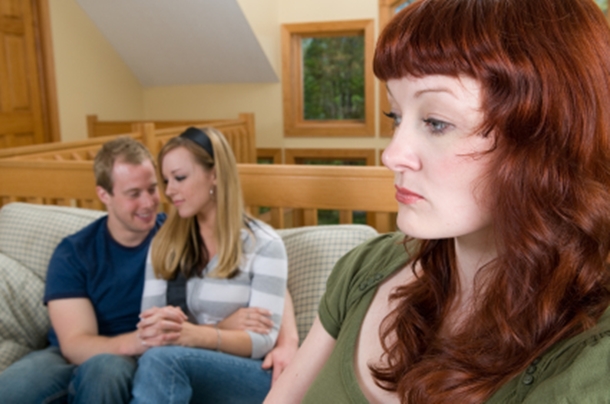My partner and I have been together for six months. We felt we were doing everything right by taking our time and not rushing the physical part of our relationship. I met my partner’s partner, he met my family, we fell in love and at last we felt that it was time to have sex. The next morning I woke up with what I thought was a nasty UTI, but it turns out that I also had Chlamydia. Ugh. Why in all of our cautious planning did we not think to get tested? I had been screened a year ago and my partner had only ever been with my metamour. Because none of us had any symptoms, we just assumed everything was fine. Big mistake. At least I can say I’ve gained some insight into how to manage the situation in a sensitive way and I would like to share what I’ve learned. I hope and trust that you’ll be smarter about it than I was, but just in case…
Encourage Everyone to Get Tested
Ideally this would take place BEFORE any sexual activity occurs. Even if it feels awkward to bring up, and even if you or your partners have had few sexual experiences; getting screened is so important. STIs and STDs can be transmitted via unprotected oral sex as well as intercourse and some of them (such as Chlamydia) can reside in your body for years without producing any symptoms. If you find yourself faced with a diagnosis, it’s crucial to inform all your partners as well as your partner’s partners. You want to encourage everyone to get tested and to follow through with treatment as needed. I took the extra step of talking to my ex partners as well (those whom I had slept with after I had been last screened). If you feel really uncomfortable about making such a call, most sexual health clinics will do it for you anonymously.
Don’t Seek to Cast Blame
In poly relationships it can especially difficult to figure out who might have brought the STD. In the end, does it really matter? The important thing is that everyone gets tested and that it be dealt with. Trying to cast blame can really only be toxic to your relationships. In my case, we all made the same mistake and none of us intended to harm anyone. I had a strong desire to get to the bottom of things but found that it became an increasingly complex web that only led to greater anxiety. At some point I had to call upon the empathetic parts of myself. How would it feel to discover that I was the culprit? How would I want to be treated in that event? Thankfully I’m involved with very caring and intelligent partners who handled the news with grace and understanding. Getting angry and casting blame is a useless drain of your energy and can only lead to strife, so don’t do it!
Don’t Feed the Shame
If it becomes obvious that you or one of your partners is the source of concern, don’t get sucked into what my friend and I refer to as “the shame cyclone”. It can be really easy to get angry and feel terrible about the situation, especially because of the stigma associated with STIs, but just remember they’re not a reflection of anyone’s worth or character. They’re a part of life that can be avoided for the most part by getting screened and using condoms at all times. Prevention is the best strategy, but if you do find yourself doing damage control, for the sake of your relationships, be sure to exercise compassion first and foremost.

Tell us what you think